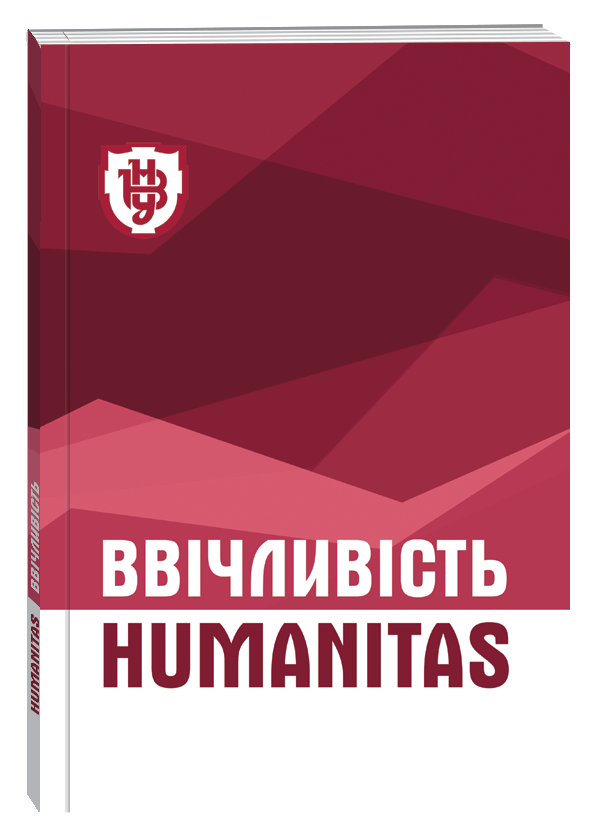KEY TASKS OF SOCIAL WORK WITH INTERNALLY DISPLACED PERSONS IN UKRAINE
DOI:
https://doi.org/10.32782/humanitas/2025.2.18Keywords:
internally displaced persons; social work; social support; integration; psychosocial assistance; social accompaniment; project-based activity; community; humanitarian response; interagency cooperationAbstract
The article is dedicated to analyzing the tasks of social work aimed at supporting internally displaced persons (IDPs) amid the full-scale war in Ukraine, which has created a large-scale humanitarian challenge for both state institutions and the social welfare system as a whole. The study outlines six key tasks currently shaping the content of social work with IDPs: providing basic support and access to services; psychosocial support; facilitating integration into host communities; activation of social capital; monitoring needs and providing social accompaniment; and implementing project-based activities in the field of social support. For each of these tasks, the article substantiates corresponding implementation forms (social counseling, group work, facilitation sessions, mentoring, volunteer initiatives, individual support, civic participation), methods of social work (case management, active listening, social diagnostics, project management, logical-structural approach, cognitive-behavioral techniques, resource mapping, facilitation, SWOT analysis), and the actors involved in their execution (social work professionals, psychologists, mobile teams, local governments, educational institutions, NGOs, charitable foundations, humanitarian agencies, volunteer associations, and IDPs themselves as agents of change). The author's approach is based on integrating theoretical models with practical experience tested in wartime conditions, particularly through the activities of social service centers, civil society and charitable organizations, local communities, and international partners. Emphasis is placed on the need for a comprehensive and interagency approach to supporting IDPs, where social work plays the role not only of providing support but also advocating for rights, mobilizing resources, and facilitating integration processes. The research findings have practical value for social sector professionals, local authorities, social policy developers, and civic initiatives working with displaced populations. The key aspects of modern social work with IDPs are summarized in an analytical table. The analysis shows that social work with IDPs during the war in Ukraine is not only part of the social protection system but also a crucial humanitarian, integrative, and stabilizing practice. The scale of internal displacement, the unique challenges faced by IDPs, and the duration of their stay in host communities require a systemic, interdisciplinary, and socially sensitive approach. Based on the analysis, the author proposes practical recommendations, including: ensuring continuous training and retraining of social workers for professional activity in crises and emergencies, particularly in psychosocial support and crisis case management; expanding the institutional capacities of local communities through the development of mobile multidisciplinary teams, digital services, and "one-stop-shop" infrastructure for IDPs; promoting interagency cooperation among social protection, healthcare, education, and cultural sectors, as well as with civic initiatives experienced in working with displaced populations; implementing practices that involve IDPs in the development, implementation, and evaluation of support programs, including advisory councils, focus groups, and participation in volunteer programs and projects; enhancing the role of project-based activity as a source of innovative solutions and resource mobilization in supporting IDPs, with a focus on sustainability, inclusivity, and efficiency; and fostering the development of research and analytical centers in the field of social work to systematically study IDP needs, adaptation processes, integration levels, and sustainable outcomes of social support. In the long-term perspective, social work with IDPs should transition from crisis response to a full-fledged integration practice based on human rights, partnership, and social cohesion. This approach will not only improve the quality of life for displaced persons but also strengthen the resilience of Ukrainian communities to the consequences of war and future challenges.
References
Kuzmin V. V., Kuzmina M. O., Stryzhak H. V. Social adaptation of internally displaced persons affected by martial law. Psychology and social work. 2024. No. 1. P. 180–195. DOI: https://doi.org/10.32782/2707-0409.2024.1.16 (дата звернення: 18.04.2025).
Liakh V., Vainola R., Lekholetova M. Technological principles of social projecting in the civil society organizations’ activities in Ukraine. Society. Integration. Education. Proceedings of the International Scientific Conference. 2024. Vol. 1. P. 724–735. DOI: https://doi.org/10.17770/sie2024vol1.7894
Активні програми | Фонд Східна Європа. East Europe Foundation. URL: https://eef.org.ua/uk/aktyvni-programy/ (дата звернення: 17.04.2025).
Актуальні питання соціальної роботи : навч. посіб. / О. Денисюк та ін. ; ред.: О. Епель, Т. Лях, І. Сила тьєва. Ужгород : РІК-У, 2023. 420 с. URL: https://elibrary.kubg.edu.ua/id/eprint/47338/ (дата звернення: 18.04.2025).
Аналітика : Внутрішньо переміщені особи. (2025). Державне підприємство «Інформаційно-обчислювальний центр Міністерства соціальної політики України». URL: https://www.ioc.gov.ua/analytics/dashboard-vpo
Громадський бюджет. Громадський бюджет. URL: https://budget.e-dem.ua/landing (дата звернення: 17.04.2025).
Дуля А., Лютий В. Досвід представництва інтересів внутрішньо переміщених осіб недержавними організаціями. Humanitas. 2023. № 3. С. 15–22. DOI: https://doi.org/10.32782/humanitas/2023.3.3 (дата звернення: 18.04.2025).
Лях В. Екстрена соціальна допомога внутрішньо переміщеним особам у воєнний час. Humanitas. 2023. № 1. С. 59–63. DOI: https://doi.org/10.32782/humanitas/2023.1.8 (дата звернення: 04.04.2025).
Лях В. В. Характеристика проблем і викликів, із якими стикаються громадські організації України, що надають соціальну підтримку внутрішньо переміщеним особам. Соціальна педагогіка: теорія та практика. 2024. № 2. С. 62–72. DOI: https://doi.org/10.12958/1817-3764-2024-2-62-72 (дата звернення: 18.04.2025).
Лях В., Петрович В. Соціальна підтримка внутрішньо переміщених осіб, які втратили роботу під час війни в Україні. Humanitas. 2024. № 1. С. 111–117. DOI: https://doi.org/10.32782/humanitas/2024.1.16 (дата звернення: 07.04.2024).
Лях Т., Бойко А., Харітонов А. Соціальна робота з постраждалими від воєнних дій: успішні практики співпраці державних і громадських організацій. Соціальна робота: реалії та перспективи : Зб. наук. пр. Все-укр. науково-практ. конф., присвяч. 110-річчю Полтав. нац. пед. ун-ту ім. В. Г. Короленка, м. Полтава, 9–10 трав. 2024 р. Полтава, 2024. С. 48–51. URL: http://elcat.pnpu.edu.ua/docs/Соціальна%20робота.pdf#page=48.
Недря К., Трубавіна І., Чередниченко О. Соціальна робота з внутрішньо переміщеними особами в Україні. Суспільство і особистість у сучасному комунікаційному дискурсі : матеріали ІV Всеукр. наук.-практ. конф., м. Запоріжжя, 2 листоп. 2022 р. Запоріжжя, 2022. С. 40–43.
Романовська Л. Особливості соціального проєктування в соціальній роботі. Педагогіка формування творчої особистості у вищій і загальноосвітній школах. 2020. Т. 1, № 68. С. 104–108. DOI: https://doi.org/10.32840/1992-5786.2020.68-1.21 (дата звернення: 18.04.2025).
Соціальна робота в умовах російсько-української війни : колект. монографія / І. Албул та ін. Умань : ФОП Ямчинський О.В., 2024. 200 с.







